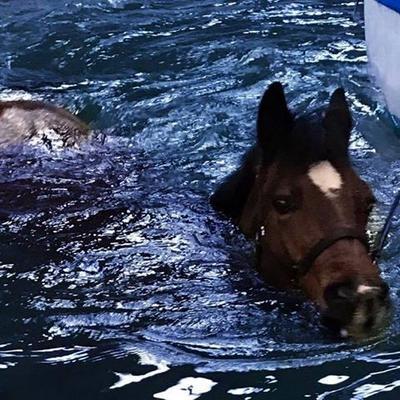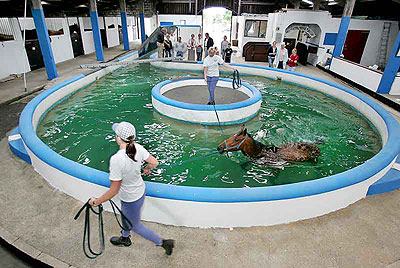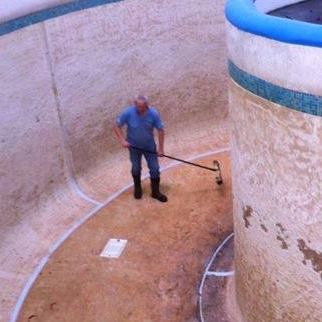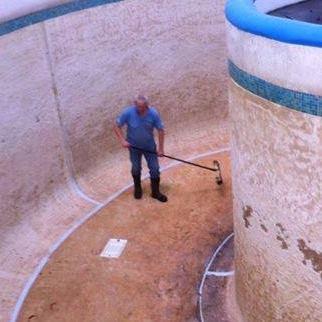Northern Equine Therapy Centre
Settle, West Yorkshire
General Info
The Northern Equine Therapy Centre stands as a recognized establishment in Settle where animal enthusiasts pursue local veterinary assistance. The clinic’s strategic position in West Yorkshire enables pet owners from surrounding areas to obtain regular veterinary services. Depending on the case services may include routine checkups pet vaccinations early disease screenings and diagnostic consultations. Northern Equine Therapy Centre establishes an orderly environment which reduces stress levels for both pets and their owners. The veterinary team in Settle manages an extensive range of medical requirements that include skin and coat conditions alongside dental troubles and mobility issues. The clinic demonstrates proficiency in handling urgent medical issues such as infections and digestive alterations even though wellness visits and preventive plans are standard practices. The residents of West Yorkshire habitually turn to Northern Equine Therapy Centre to help them handle complex diagnoses and care for aging pets with chronic conditions. Visitors frequently discuss the clinic's communication approach which stands out as clear, kind, and understandable. Pet owners experience enhanced confidence regarding their animal care choices through this support system. A significant number of clients maintain long-term relationships with us because they appreciate our consistent service and the trust we've built together over time. The staff's expertise in both straightforward and intricate veterinary subjects positions them as ideal guides for long-term animal care. Northern Equine Therapy Centre experiences ongoing expansion because increasing numbers of pet owners either relocate to the Settle area or seek nearby veterinary services. The clinic's function within the local pet community establishes a network promoting responsible ownership and attentive animal care. Anyone looking for a well-established veterinary practice in West Yorkshire will find it to be a dependable option for both routine and emergency animal care services. The presence of Northern Equine Therapy Centre offers a convenient healthcare option for people living in Settle and adjacent West Yorkshire regions. New pet owners seeking guidance and longtime clients managing special conditions both require clear, compassionate, and consistent veterinary service. The implementation of such practices enables the essential community role to be realized.
Reviews
Be the first to review!
Click to Rate
Photo Gallery
Book an Appointment
Online booking unavailable
Please call
+44 7745 554181
Business Hours
Monday
Mon
08:00AM-18:00PM
Tuesday
Tue
08:00AM-18:00PM
Wednesday
Wed
08:00AM-18:00PM
Thursday
Thu
08:00AM-18:00PM
Friday
Fri
08:00AM-18:00PM
Is this your business?
CLAIM IT HEREIncorrect information? Let us know
Northern Equine Therapy Centre
Settle, West Yorkshire
General Info
The Northern Equine Therapy Centre stands as a recognized establishment in Settle where animal enthusiasts pursue local veterinary assistance. The clinic’s strategic position in West Yorkshire enables pet owners from surrounding areas to obtain regular veterinary services. Depending on the case services may include routine checkups pet vaccinations early disease screenings and diagnostic consultations. Northern Equine Therapy Centre establishes an orderly environment which reduces stress levels for both pets and their owners. The veterinary team in Settle manages an extensive range of medical requirements that include skin and coat conditions alongside dental troubles and mobility issues. The clinic demonstrates proficiency in handling urgent medical issues such as infections and digestive alterations even though wellness visits and preventive plans are standard practices. The residents of West Yorkshire habitually turn to Northern Equine Therapy Centre to help them handle complex diagnoses and care for aging pets with chronic conditions. Visitors frequently discuss the clinic's communication approach which stands out as clear, kind, and understandable. Pet owners experience enhanced confidence regarding their animal care choices through this support system. A significant number of clients maintain long-term relationships with us because they appreciate our consistent service and the trust we've built together over time. The staff's expertise in both straightforward and intricate veterinary subjects positions them as ideal guides for long-term animal care. Northern Equine Therapy Centre experiences ongoing expansion because increasing numbers of pet owners either relocate to the Settle area or seek nearby veterinary services. The clinic's function within the local pet community establishes a network promoting responsible ownership and attentive animal care. Anyone looking for a well-established veterinary practice in West Yorkshire will find it to be a dependable option for both routine and emergency animal care services. The presence of Northern Equine Therapy Centre offers a convenient healthcare option for people living in Settle and adjacent West Yorkshire regions. New pet owners seeking guidance and longtime clients managing special conditions both require clear, compassionate, and consistent veterinary service. The implementation of such practices enables the essential community role to be realized.
Business Hours
Monday
08:00AM-18:00PM
Tuesday
08:00AM-18:00PM
Wednesday
08:00AM-18:00PM
Thursday
08:00AM-18:00PM
Friday
08:00AM-18:00PM
Reviews
Be the first to review!
Click to Rate
Photo Gallery
Map
Is this your business?
CLAIM IT HEREIncorrect information? Let us know




